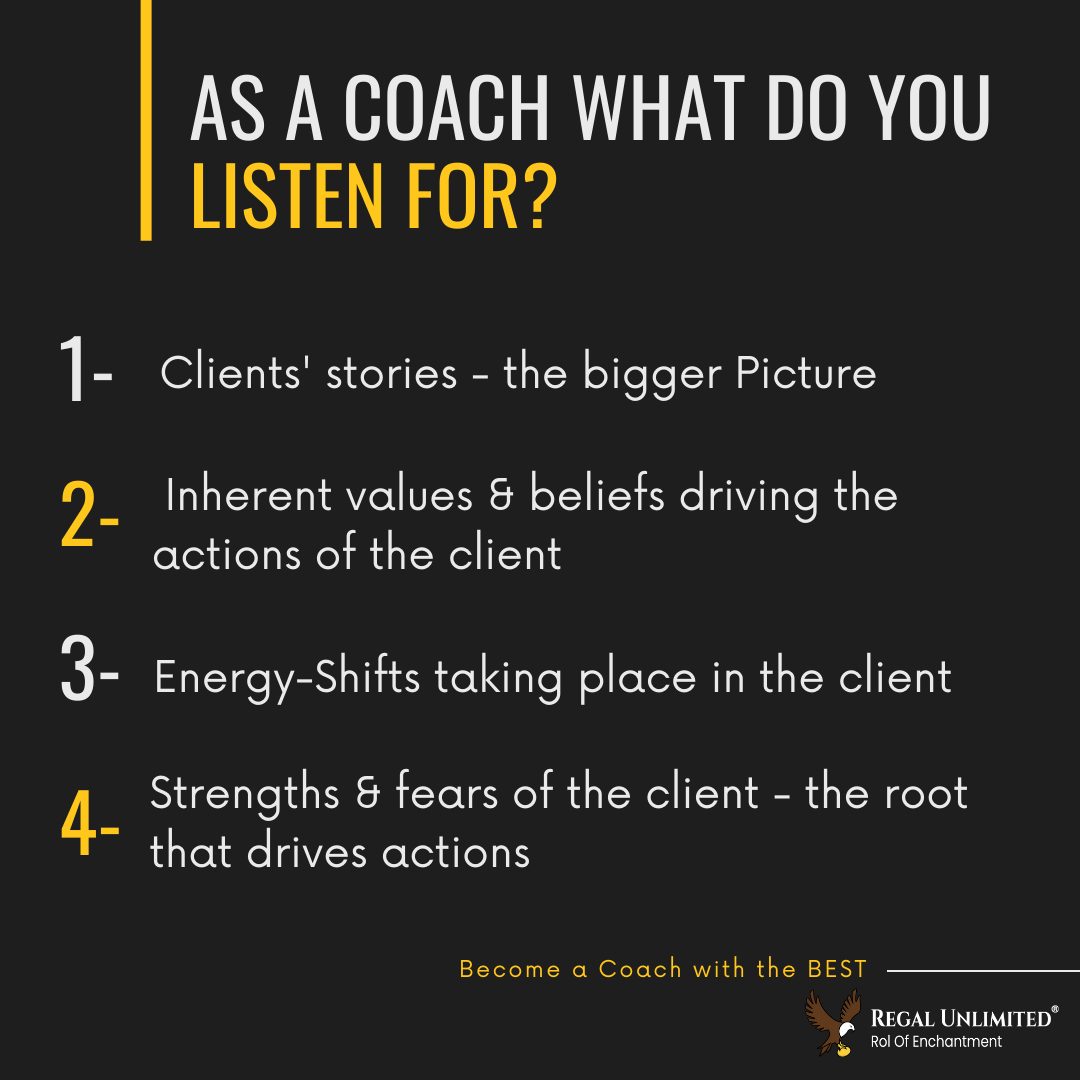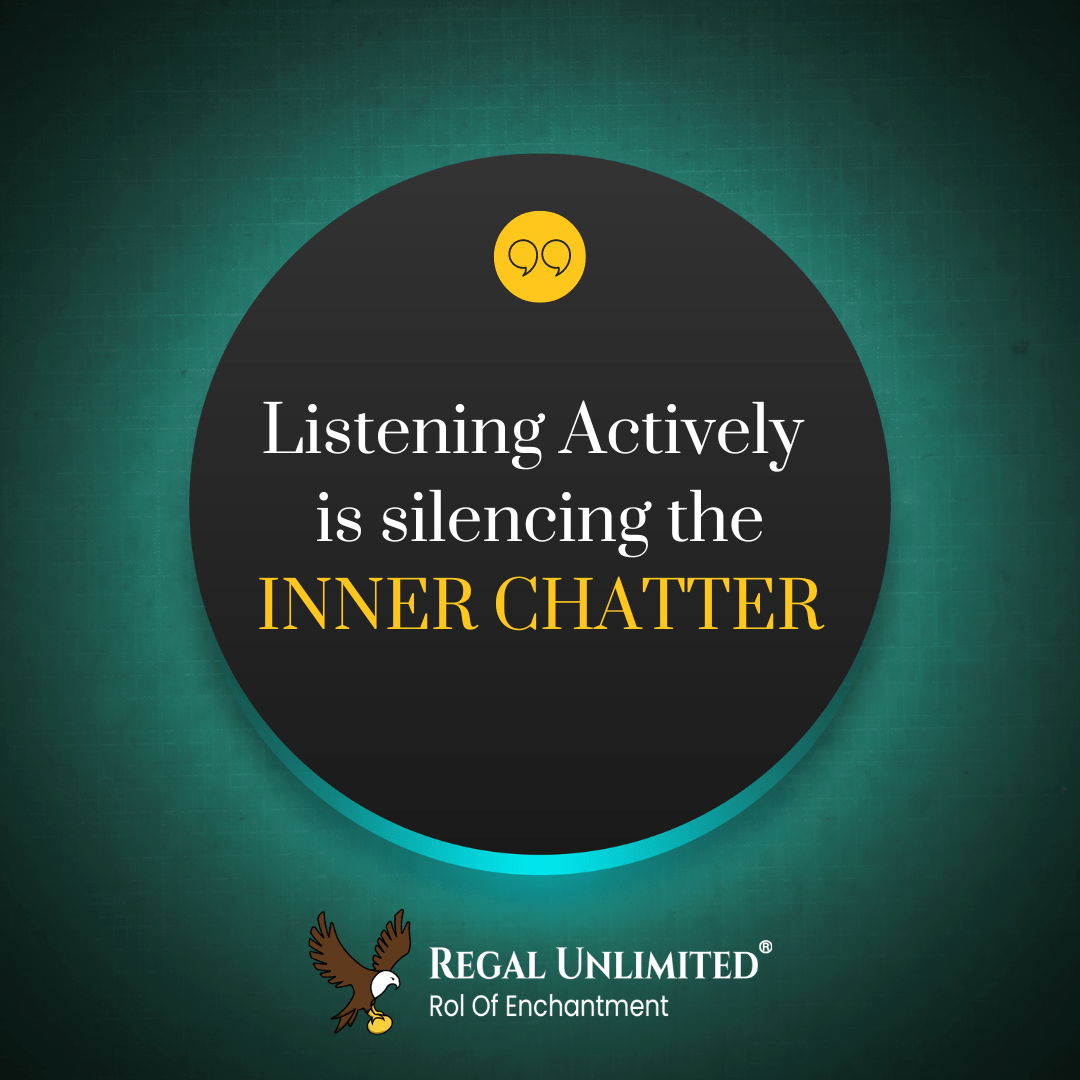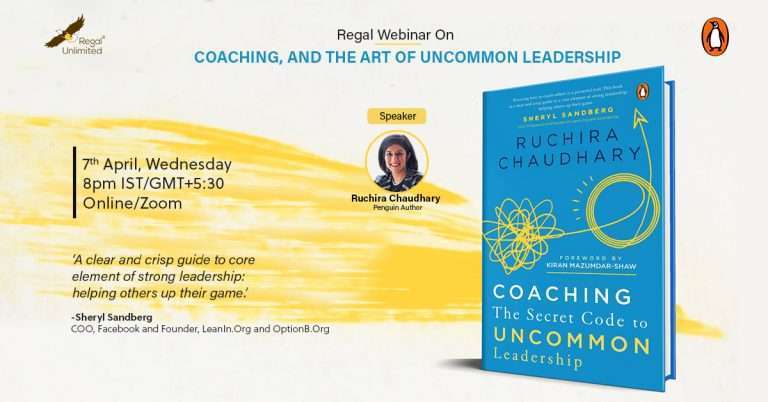In executive leadership coaching, active listening is a vital skill that can single-handedly generate transformational shifts & impactful breakthroughs in coaching engagements.
“A senior leader who had lost the joy of working came to me for executive leadership coaching. The sessions revealed that he was emotionally guarded at work. He had always kept his genuine, caring side hidden. Identifying this limiting behaviour was a transformational breakthrough for him. The leader decided to show his tender side at work. He opened new avenues for his team members and pushed them to be more independent. Within six months, his attitude toward his job and his relationship with co-workers were visibly different. His willingness to change and be truly authentic came from him. All I did as a coach was listen actively.” – Supriya Padmanabhan, Impactful Interactions Coach, CEO and Founding Partner, My Persona
We asked two highly successful executive coaches, Supriya Padmanabhan (ICF-PCC) and Siddhi Japee (ICF-PCC), to share their thoughts on active listening and how they use this skill to deliver the maximum to their coaching clients. If you are an aspiring executive coach or practising executive leadership coaching, this blog will give you an in-depth understanding of a core coaching competency. If you are practicing, here’s a chance to revisit and refresh your basics and learn something new!
What is active listening?
It is listening to the other person with your whole being. “Only then can you truly serve the other person,” says Siddhi. “Otherwise, you only serve your agenda, not your client’s.”
Listening is not a passive exercise; it’s an active endeavour. It requires effort, practice, and the coach to listen for the essence and not the peripheral drama. For coaches, this competency has an additional layer. “Listen Actively” – a constant effort to be involved in the conversation without hijacking it ~ Karan Kumar.

What does active listening involve?

1) Leaving out the ‘I’, ‘Me’ and ‘Mine’
In active listening, there’s no ‘I.’ So you must first suspend your inner dialogue- the inner voices, perceptions, judgments, beliefs, and biases. Otherwise, your baggage can filter through or interfere with what comes to you. It can lead you to suggest solutions, offer advice, or send the client down a path that might not be true to them.

2) Sincere Curiosity
3) Being in the moment
4) Respectful acknowledgement
5) Zooming IN and OUT
What is NOT Active Listening?
- Keeping mum & simply nodding affirmatively.
- Just chiming in with a notional ‘hmm,’ ‘yeah,’ ‘is it?’ and the like.
- Parroting the client’s words is considered a part of active listening. But coaches should go beyond mechanically repeating what the client just said, as it could also come from a space of inattention.
- Interjecting the client with information, anecdotes, and stories from the coach’s experience.
- Listening with the intent to reply (don’t we coaches so want to ask the ‘next best question’?)
- Responding with the phrase ‘I understand.’ which implies acceptance of what a client believes to be true. As a coach, it would be more prudent to reply, ‘You are saying that..’ or ‘I heard you say..’
As an Executive Coach, What do you Listen for?

An executive coach opined that we listen to the client’s stories – the bigger picture! Another leadership coach went on at length to share how coaches should explore and listen for the inherent values and beliefs in the conversation.

These beliefs and values are why clients act the way they do… Beliefs like “I am an introvert,” “I am not a numbers guy,” “Sales and me… not possible,” etc. are heard very often in coaching conversations.
For instance, an executive shared during the coaching conversation how he has an eye for detail and ensures that every proposal has the best fonts, colour combinations, design elements, etc. But his decisions are often thwarted, so proposals get delayed, etc. The executive coach relayed to the client that the value he senses from his words is ‘I am a perfectionist.” He then asked the client to consider that while perfectionism might be critical as an individual contributor, is this “Perfectionism” serving the client in the post of a senior executive? It was an ‘Aha Moment’ for the seasoned executive!
A coach identifies such values and communicates them to the client. Even values, like beliefs, can be self-limiting at times! Finally, one should listen for the “Strengths” and “Fears” of the client…
An executive was playing the “Yes Man” to the Board Members. The executive coach probed, and after 10 minutes of conversation, the issue that emerged was – that the executive was fearful of being ‘disliked.’
Fear is a very subtle thing. We fear failure, prejudices, and biases. We fear being disrespected or judged. In this case, it was fear of being disliked! An executive coach who listens actively can sense these lingering fears and bring them to the fore.
Benefits of active listening for an Executive Coach
Adult-to-adult relationship
Receive maximum data

Be a genuinely neutral partner
In tune with the client’s energy
While listening actively, a coach can notice the subtle shifts in the client’s energy. These changes are more nuanced than non-verbal cues. You become more aware of the inflexions and emotions in the verbal and non-verbal communication of the client.
Siddhi narrates an example of a leader who wanted to improve leadership/managerial skills. He was extremely reserved and kept the discussions focused only on the professionals. In one of the sessions, active listening helped Siddhi sense a slight disturbance in the client’s energy. Siddhi asked him why he seemed low. The normally reticent client was relieved to unburden himself of a host of personal issues that were outside the scope of the coaching conversation. So Siddhi just listened actively. Ultimately, the visibly calmer client thanked her for lending an ear. He could move on to the set goals for the session. Siddhi was happy to see her client visibly lighter in that session and the following ones.
It helps ask the right questions.
Move towards mastery in Coaching
Listening actively makes your executive leadership coaching deeper and more intuitive, leaving you to ‘dance in the moment.’, which is mastery.
How active listening benefits coachees’
Builds a safe space
Enhances inner reflection
Strengthens sense of ownership
Be Seen
Have you seen the scene from Avatar 2 where the father tells the son, ‘I See You’? That’s what being an active listener does for coachees. It enables them to ‘be seen,’ which is empowering.”
“We tend to talk at each other. We rarely talk to each other. Active listening changes that,” quips Supriya.
Beliefs that can prevent coaches from actively listening
1) “Listening is exhausting”
Many executive coaches feel listening takes too much time and can slow the executive leadership coaching process. They reason, “Why spend so much time on it when the client is just venting.”
2) “I need to focus on asking powerful questions rather than listening.“
3) “I have understood the problem halfway through the talking, so I don’t need to listen more.”
4) “I’ve faced the same problem as a woman. Here’s what I did”
5) “Active listening comes before or after powerful questioning.”
6) “Why don’t you talk to your boss about your challenges?”
Coaches, especially new ones, want to make a difference in the coachee’s life. And sometimes, their beliefs, sense of self-worth, or eagerness to solve the problem interfere. They may inadvertently offer suggestions or solutions. The key, says Supriya, is to trust the coachee & the executive leadership coaching process and let things emerge from the client. Active listening helps that happen.
How to keep your active listening skills sharp?
Listen actively all the time! Active listening is a way of life, not something that can be turned on and off during executive leadership coaching session. So it must be integrated into all aspects of a coach’s life.
How about listening actively to your spouse, kids, and your parents? One of our coaches made a tracker, hung it in his bedroom, and asked his spouse to rate him on his listening skills every day.

- Mindfulness exercises can help you stay grounded and focused inward, reducing the inner chatter.
- Listen to yourself as you communicate with others.
- Be aware of yourself as you listen to others. Bring back your attention when it strays.
- Reflect on when you didn’t listen actively.
- Identify the triggers that make you stop listening actively and work on being free of them.
- Discuss your issues with other practising coaches.
- Acknowledge yourself when you actively listen so you can affirm that you are good at it.

Become a Credentialed Executive coach with Regal Unlimited.
Do you want to be in the top 10% of successful executive coaches worldwide?
You need a world-class program like ours to get you there.
Here’s why our alumni always recommend Regal Unlimited’s ICF certification program to aspiring coaches!


Join our next ICF-ACC cohort.
Here’s what makes Regal Unlimited’s ICF certification the most sought-after program.
- We provide the perfect ecosystem for aspiring coaches to flourish and expand their base.
- We have trained over 300 coaches.
- We are known for our high-quality training by the best coaches and the best coaching certification program in the business.
- We enable you to build your coaching muscle through the ICF-mandated 100 hours of coaching practice.
- We handhold and mentor you through your credentialing
- Our Coach Accelerator Program can help you quickly materialize your entrepreneurial dreams
- We offer last-mile support in ICF-credential renewals
- You can take your coaching quotient to the next level through our executive leadership coaching intensives – Coaching Unlimited.
Watch our video – A Guide on How to Become An ICF Certified Coach
Supriya Padmanabhan (ICF-PCC) is an Impactful Interactions Coach. She helps leaders build authentic leadership persona. A seasoned corporate leader, an Integrated Clinical Hypnotherapist with a Diploma in Applied Buddhist Psychology, and a parent-facilitator in the International Association of Facilitators -Supriya brings multiple competencies to her coaching profile. View Supriya’s Linkedin profile here.
Siddhi Japee (ICF-PCC) is an executive/leadership development/life coach with over 22 years of experience in leadership, communication, and learning in the academic & private sectors. She is certified in neuroscience-based approaches to anchor change and enables individuals to achieve their goals. Visit Siddhi’s Linkedin profile here.




